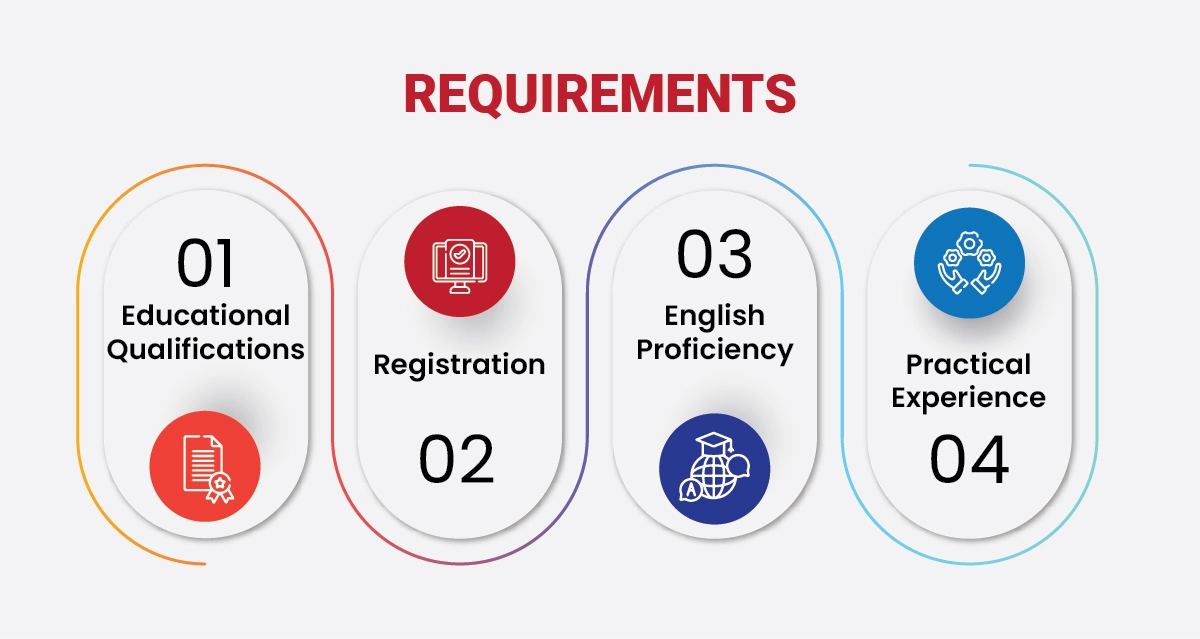Hey mate, how ya goin’? I know you are here to find out what are the most in demand jobs in Australia. Stay here, mate, I will explain everything you need to explore and keep an eye on where your profession is in this list.
So, let’s dig into the blog!
Table of Content
1List of In Demand Jobs in Australia2Top 10 In Demand Jobs in Australia3Average Salary in Australia Per Month4Job Opportunities in Australia5Best Companies to Work for in Australia6Frequently Asked Questions
List of In Demand Jobs in Australia
Australia is witnessing a rising demand for skilled professionals across various sectors. From healthcare to technology, numerous job roles are crucial for the country’s economic growth. Here are the top 10 in demand jobs in Australia for 2025:
- Registered Nurses
- ICT Support and Test Engineers
- Analyst Programmers
- Accountants
- Early Childhood Teachers
- Biomedical Engineers
- Occupational Therapists
- Civil Engineers
- Physiotherapists
- Chefs
Top 10 In Demand Jobs in Australia
Australia’s workforce is evolving rapidly, with specific professions witnessing increased demand. These roles not only offer excellent career prospects but also contribute significantly to the country’s infrastructure and economy. Here’s a closer look at the top 10 in demand jobs in Australia for 2025.

1. Registered Nurses
In Australia’s healthcare scene, registered nurses are absolutely essential. They’re the ones on the ground, providing direct patient care, handling treatments, and working closely with doctors and other medical staff to make sure everyone gets the best possible outcome. Basically, nurses are the glue that holds the whole system together. It’s a great fit if you’re someone who genuinely cares about people and can handle the fast-paced, sometimes chaotic nature of healthcare. If you can juggle a bunch of tasks and keep your eye on the details, you’ll fit right in.
| Factors | Details |
|---|---|
| Why is it In Demand? | Aging population, increasing healthcare needs |
| Required Qualifications | Bachelor’s or Master’s in Nursing |
| Eligibility Criteria | AHPRA registration, relevant work experience preferred |
| Job Roles | Clinical Nurse, Nursing Educator, Aged Care Nurse |
| ANZSCO code | 254499 |
2. ICT Support and Test Engineers
In the tech world, ICT Support and Test Engineers are the problem-solvers behind the scenes. They make sure software and systems run smoothly by troubleshooting, testing, and maintaining IT infrastructure. These professionals are crucial in keeping businesses operational, minimizing downtime, and improving efficiency. If you’re detail-oriented, love problem-solving, and have a knack for technology, this field is for you.
| Factors | Details |
|---|---|
| Why is it In Demand? | Rapid digital transformation, increasing reliance on IT systems |
| Required Qualifications | Bachelor’s in IT, Computer Science, or a related field |
| Eligibility Criteria | Relevant certifications (e.g., ISTQB, ITIL), hands-on experience |
| Job Roles | Software Tester, Systems Analyst, IT Support Engineer |
| ANZSCO Code | 263299 |
3. Analyst Programmers
Analyst Programmers bridge the gap between software development and business needs. They design, modify, and test applications to ensure they align with an organization’s goals. If you enjoy coding, problem-solving, and developing solutions that optimize business performance, this role is a great fit. That is why we can say without any doubt that Analyst programmers are one of the in demand jobs in Australia.
| Factors | Details |
|---|---|
| Why is it In Demand? | Growing IT industry, increasing demand for software solutions |
| Required Qualifications | Bachelor’s in Computer Science, IT, or Software Engineering |
| Eligibility Criteria | Proficiency in programming languages (Java, Python, C#), relevant experience |
| Job Roles | Software Developer, Application Analyst, Systems Programmer |
| ANZSCO Code | 261311 |
4. Accountants
Accountants are the backbone of financial management in businesses. They analyze financial data, manage budgets, and make sure compliance with tax regulations. If you have strong analytical skills, a love for numbers, and an eye for detail, accounting is a solid career choice.
| Factors | Details |
|---|---|
| Why is it In Demand? | Strong economy, high business growth, financial compliance needs |
| Required Qualifications | Bachelor’s in Accounting, Finance, or a related field |
| Eligibility Criteria | CPA/CA accreditation, relevant work experience preferred |
| Job Roles | Financial Accountant, Tax Accountant, Auditor |
| ANZSCO Code | 221111 |
5. Early Childhood Teachers
Early Childhood Teachers play a vital role in shaping young minds by fostering foundational skills in children during their early years. This rewarding profession requires patience, creativity, and strong communication skills to support a child’s cognitive, social, and emotional development.
| Factors | Details |
|---|---|
| Why is it In Demand? | Increasing student population, shortage of skilled teachers |
| Required Qualifications | Bachelor’s in Early Childhood Education, Diploma for entry-level roles |
| Eligibility Criteria | Teacher registration, practical training experience |
| Job Roles | Preschool Teacher, Kindergarten Teacher, Early Learning Educator |
| ANZSCO Code | 241111 |
6. Biomedical Engineers
Biomedical Engineers blend engineering with medical sciences to develop healthcare solutions, such as prosthetics, medical devices, and diagnostic tools. If you’re passionate about innovation and healthcare technology, this is a perfect fit.
| Factors | Details |
|---|---|
| Why is it In Demand? | Advancements in medical technology, growing healthcare sector |
| Required Qualifications | Bachelor’s or Master’s in Biomedical Engineering |
| Eligibility Criteria | Relevant work experience, professional accreditation preferred |
| Job Roles | Medical Device Engineer, Clinical Engineer, Biomechanical Engineer |
| ANZSCO Code | 233913 |
7. Occupational Therapists
Occupational Therapists help individuals regain independence in daily activities after injury, illness, or disability. This role is ideal for those who enjoy helping others and making a meaningful impact on people’s lives.
| Factors | Details |
|---|---|
| Why is it In Demand? | Aging population, increasing rehabilitation needs |
| Required Qualifications | Bachelor’s or Master’s in Occupational Therapy |
| Eligibility Criteria | Clinical experience preferred |
| Job Roles | Rehabilitation Specialist, Pediatric OT, Mental Health OT |
| ANZSCO Code | 252411 |
8. Civil Engineers
Civil Engineers design, build, and maintain infrastructure projects like roads, bridges, and buildings. If you’re passionate about construction, problem-solving, and large-scale projects, civil engineering is a great choice.
| Factors | Details |
|---|---|
| Why is it In Demand? | Infrastructure development, urban expansion |
| Required Qualifications | Bachelor’s or Master’s in Civil Engineering |
| Eligibility Criteria | Engineers Australia accreditation, site experience preferred |
| Job Roles | Structural Engineer, Project Manager, Construction Engineer |
| ANZSCO Code | 233211 |
9. Physiotherapists
Physiotherapists help patients recover from injuries and improve mobility through rehabilitation exercises. This career is perfect for those passionate about health, wellness, and helping people regain physical strength. Thus without any hesitation we can say that Physiotherapists are one of the in demand jobs in Australia.
| Factors | Details |
|---|---|
| Why is it In Demand? | Growing healthcare needs, sports rehabilitation demand |
| Required Qualifications | Bachelor’s or Master’s in Physiotherapy |
| Eligibility Criteria | AHPRA registration, practical experience preferred |
| Job Roles | Sports Physiotherapist, Rehabilitation Specialist, Pediatric Physiotherapist |
| ANZSCO Code | 252511 |
10. Chefs
Chefs bring creativity to the kitchen, crafting delicious meals and managing culinary teams. Whether in restaurants, hotels, or catering businesses, this career is for those who love cooking and working in a dynamic environment.
| Factors | Details |
|---|---|
| Why is it In Demand? | Hospitality industry growth, increasing demand for skilled chefs |
| Required Qualifications | Culinary arts diploma or equivalent experience |
| Eligibility Criteria | Commercial kitchen experience, food safety certification |
| Job Roles | Head Chef, Sous Chef, Pastry Chef |
| ANZSCO Code | 351311 |
Average Salary in Australia Per Month
Salaries in Australia vary based on experience, location, and industry. The table below provides an overview of the average monthly earnings for in demand jobs in Australia 2025.
| Job Role | Average Monthly Salary (AUD) |
| Registered Nurse | $6,500 – $9,000 |
| ICT Support and Test Engineer | $7,000 – $10,500 |
| Analyst Programmer | $7,500 – $11,000 |
| Accountant | $6,000 – $9,500 |
| Early Childhood Teachers | $5,500 – $8,500 |
| Biomedical Engineer | $7,000 – $10,000 |
| Occupational Therapist | $6,000 – $9,000 |
| Civil Engineer | $7,000 – $10,500 |
| Physiotherapist | $6,500 – $9,500 |
| Chef | $4,500 – $7,500 |
Job Opportunities in Australia
Australia offers excellent job opportunities across various industries, including healthcare, IT, engineering, education, and skilled trades. With a strong demand for professionals like nurses, software developers, civil engineers, and teachers, skilled workers can find promising career prospects. The country’s work visa programs, such as the Skilled Independent Visa (Subclass 189), Skilled Nominated Visa (Subclass 190), and Skilled Work Regional Visa (Subclass 491), make it easier for qualified individuals to migrate and build a future in Australia. Whether you’re seeking permanent residency or temporary work, Australia provides a thriving job market with competitive salaries and a high quality of life.
Best Companies to Work for in Australia
Australia has top companies recognized for their exceptional workplace environments. Based on recent rankings and evaluations, here are some of the top companies to work for in Australia:
- Commonwealth Bank
- Atlassian
- BHP Group
- Westpac
- Woolworths Group
- Deloitte Australia
- Telstra
- Rio Tinto
- Accenture Australia
- Australian Government (Public Sector)
These companies have been acknowledged for their exceptional workplace cultures, employee benefits, and opportunities for professional growth. When considering employment opportunities, it’s beneficial to research each company’s current policies and culture to ensure alignment with your career goals and values. If you’re looking for career stability and growth, exploring in demand jobs in Australia can be your pathway to a successful future in Australia.



